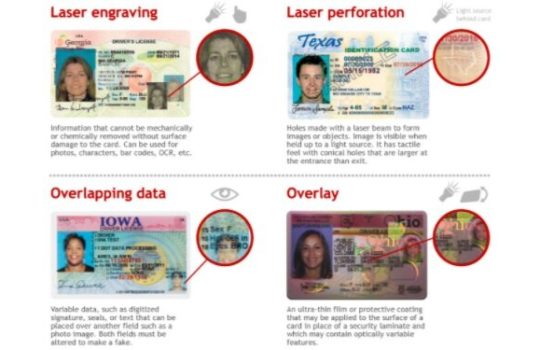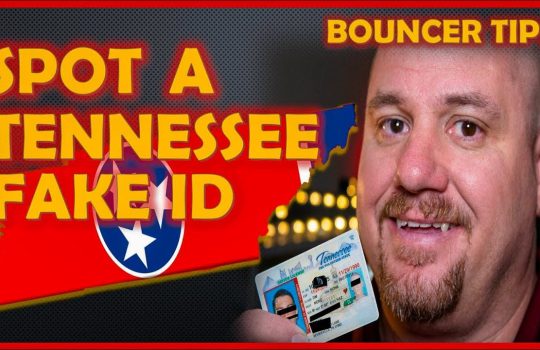Oklahoma Fake Id Templates
2023-07-21 2023-07-21 20:52Oklahoma Fake Id Templates

Oklahoma Fake Id Templates
Columbia Fake Passport
Dnr Fake Passport
Maine Fake Id Scannable
Title: Oklahoma Fake ID Templates: A Close Look at Their Implications
Introduction:
The availability of fake identification cards has become increasingly prevalent, particularly among younger individuals seeking access to restricted venues or engaging in underage activities. One state consistently known for its fake ID industry is Oklahoma, where an alarming number of templates can be found for creating counterfeit identification cards. In this article, we delve into the world of Oklahoma fake ID templates, exploring their implications, legal consequences, and the potential risks associated with their usage.
1. Understanding Fake ID Templates:
Fake ID templates refer to digital or physical templates used as a blueprint to recreate an identification card for fraudulent purposes. These templates typically include a replica of the state’s official logo, security features, and personal information fields for modification, making the resulting counterfeit IDs appear legitimate at first glance.
2. The Prevalence of Oklahoma Fake ID Templates:
Oklahoma has gained notoriety as a hotspot for fake ID template production due to its relatively lenient regulations regarding identification card design. This leniency has inadvertently facilitated the creation of templates replicating the state’s licenses, enabling counterfeit IDs to be easily produced.
3. The Dark Side of Fake IDs:
While many individuals may perceive fake IDs as an innocent rite of passage or a means for access to age-restricted venues, their implications go beyond mere youthful mischief. The use of fake identification poses significant risks, both legally and personally, that can have far-reaching consequences for the individuals involved.
4. Legal Consequences:
The creation, possession, or use of fake identification documents is illegal in all states, including Oklahoma. State laws impose severe penalties, including fines, imprisonment, and a permanent criminal record, for those found guilty of manufacturing or distributing counterfeit IDs. Authorities are continually cracking down on these activities, employing advanced techniques to detect fraudulent forms of identification.
5. Security Concerns:
Oklahoma takes various precautions to ensure the integrity of its official identification cards. However, the availability of fake ID templates undermines these security measures, making it increasingly challenging for law enforcement professionals and venue personnel to distinguish between genuine and counterfeit IDs. This creates a potential security risk, jeopardizing public safety.
6. Ethical Considerations:
The pervasive use of fake identification also raises important ethical questions. By using counterfeit IDs, individuals undermine the integrity of identification systems, contributing to a culture of dishonesty. It is crucial to recognize the broader societal implications and consider the ethical grounds for refraining from engaging in such activities.
7. Risks and Consequences for Users:
Beyond legal repercussions, using a fake ID carries personal risks and potential consequences. Entrusting personal information to illegal operations, such as those providing fake ID templates, can expose individuals to identity theft, fraud, or compromise of sensitive data. Moreover, the reputational and social risks associated with engaging in underage activities can have lasting impacts on an individual’s personal and professional life.
8. Combating Fake ID Production:
To counter the proliferation of fake ID templates, both legal measures and educational campaigns should be employed. State authorities, along with educational institutions, community organizations, and law enforcement agencies, should join forces to raise awareness about the risks, consequences, and legalities surrounding fake identifications. Emphasizing responsible behavior and the importance of honest verification processes can help discourage the demand for counterfeit IDs.
9. Creating a Culture of Self-Restraint and Responsibility:
Instilling values of self-restraint and accountability in young individuals can significantly reduce the desire to obtain and use fake IDs. Promoting age-appropriate activities, offering alternative entertainment options, and fostering open dialogue about the associated risks can contribute to the development of responsible habits and a culture of integrity among future generations.
Conclusion:
Oklahoma’s fake ID templates present numerous concerns, including legal ramifications, security issues, and ethical dilemmas. It is imperative for individuals to understand the potential consequences associated with their usage and for society as a whole to address the root causes of their proliferation. By working collaboratively, we can discourage the demand for counterfeit identification and foster a culture that values honesty, responsibility, and legal compliance.

















